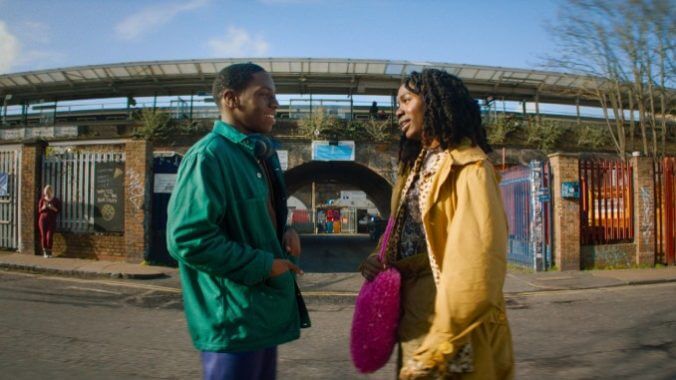Rye Lane Reminds Us That Great Romantic Comedies Have Always Prioritized Setting

Something director Raine Allen-Miller understands about London, about most cities really, is that it is a kaleidoscope of areas, both distinct and bleeding into one another. In her feature film debut Rye Lane, London is a mass of bustling neighborhoods, subdivisions that are alive and constantly redefining their boundaries as the city grows up and out. Allen-Miller enacts this with creative camera movements, swiveling around to take in the graffiti-lined streets and wielding a fisheye lens to follow characters wandering between crowded stalls. Rye Lane is being heralded for its simplicity and clarity, a return to form for the romantic comedy, but this belies something more complex which activates the underpinnings of the genre.
Dom and Yas’ love story is contained within this space and time, specific to Peckham and its inner workings. In keeping with this, their relationship thrives in transit–the period spent traversing different boroughs, sacrificed to what I affectionately call “the black hole of time” specific to South London (mostly due to the absence of an underground layout and the resulting bus traffic).
-

-

-

-

-

-

-

-

-

-

-

-

-

-

-

-

-

-

-

-

-

-

-

-

-

-

-

-

-

-

-

-

-

-

-

-

-

-

-

-








































